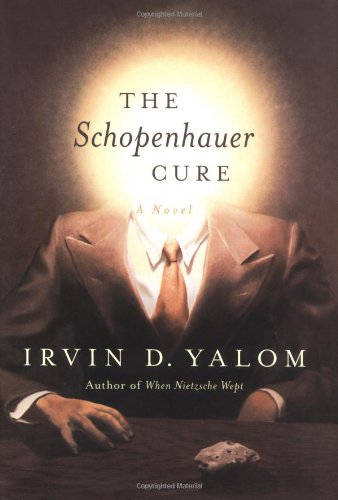—Richard Dawkins
A few years ago I set out to canvass the literature on Charles Darwin. I thought it would be a manageable task, but I soon realized what a naïve idea this was. I do not know how many books have been written about him, but there seem to be thousands, and each year more appear.
—James Rachels
--------------------------------------------------------------------------------------------------------------
Charles Darwin (1809-1882 CE) was an English naturalist who realized that all species of life have descended over time from common ancestors, and proposed the scientific theory that this branching pattern of evolution resulted from a process that he called natural selection. He published his theory with compelling evidence for evolution in his 1859 book On the Origin of the Species. In 1871, he examined human evolution and sexual selection in The Descent of Man, and Selection in Relation to Sex, followed in 1872 by The Expression of the Emotions in Man and Animals. Darwin has been described as one of the most influential figures in human history.
Has Adapted and Grown
Just a quick note to insert Darwin into this timeline. It is obvious from the rest of this information that Darwin’s theory has had a major influence on mankind and our understanding of where we fit into this universe. It is hard to comprehend what it must have been like before Darwin to wonder, “Where did we all come from?” It is no wonder previous explanations ended up with something supernatural or silly. Evolution has made the history of our home known to us and new discoveries continue to unravel the meaning of life. Without this knowledge, prior philosophers had to overcome an enormous obstacle to the truth. Future ones will have no such excuse other than the momentum of history.
--------------------------------------------------------------------------------------------------------------
Where do great ideas like this come from? Not from thin air, completely untethered from everything that has gone before, but from some new combination of previously separated pieces of knowledge. At a time when "most Europeans believed the world was created by God in seven days as described in the bible," Darwin sailed off on a five-year scientific expedition on the HMS Beagle. He had spent much of his education as a naturalist learning about geology, a field where intellectuals of the day were wrestling with the competing ideas of neptunism (which proposed rocks formed from the crystallisation of minerals in the early Earth's oceans), plutonism (the geologic theory that the rocks forming the Earth were formed in fire by volcanic activity), and uniformitarianism (the assumption that the same natural laws and processes that operate in the universe now have always operated in the universe in the past and apply everywhere in the universe). On the Beagle, Darwin read Charles Lyell's recently published uniformitarian tract called Principles of Geology, which suggested that the fossils found in rocks were actually evidence of animals that had lived many thousands or millions of years ago.
While Darwin thought about this vista opening up in the natural world to millennia of new history, he surely examined it through the lens of his earlier and varied experiences too. His freethinking father had pushed him into divinity studies to become an Anglican parson after he neglected his medical studies. While in that field, he read about arguments for divine design in nature (natural theology). He met with Unitarians who were welcoming the radical implications of transmutation of species, but he also met Anglicans to whom transmutation was anathema to defending social order. And he traveled in Whig circles that promoted Malthusianism underlying the controversial Poor Law reforms to stop welfare from causing overpopulation and more poverty.
These diverse points of view would all have been clanging around in Darwin's mind during his voyage, when the breakthrough for his ideas on evolution suddenly came to him in the Galapagos Islands. Darwin noticed that each island supported its own form of finches, which were closely related to one another but different in important ways, and suddenly his principles of evolution sprang to mind. Millions of people all over the world must have noticed subtly different species in slightly overlapping habitats before, but only Darwin's mind, prepared by all the other discussions of his day, proved to be the perfect fertile ground to see something new there. And once he did, the world was changed forever by the idea that eventually became these two sentences in the introduction to On The Origin of Species:
As many more individuals of each species are born than can possibly survive; and as, consequently, there is a frequently recurring struggle for existence, it follows that any being, if it vary however slightly in any manner profitable to itself, under the complex and sometimes varying conditions of life, will have a better chance of surviving, and thus be naturally selected. From the strong principle of inheritance, any selected variety will tend to propagate its new and modified form.
Note how it was his focus on the existential struggle of life that led Darwin to his solution. Suddenly, all the age-old philosophical ramblings on our origins seemed worthless. From Moses' 4.5 Commandments, to Plato's unchanged and eternal forms, to Anselm's reliance on the power of human intellect to justify his ontological argument, to Descartes' dualism injected into human thought alone, to Kant's belief that objective reality is a construct of the human mind; all of these, and many others, crumbled into dust once Darwin deduced the true story about the common origins mankind shares with all the other forms of life on the planet. We can probably expect many of our own current beliefs to similarly be replaced by some new discovery in the future, but that is the fate all of us face in this ongoing project of cultural inheritance that humanity has embarked upon. We take what has come before us, enjoy it, profit from it, do our best to change it into something better, and then tip our hats to the future when we step offstage and allow the world to move on without us.
Darwin didn't think about cultural evolution in this way. He "had no nature/nurture distinction, and neither did anyone else until the rise of genetics forty years after On the Origin of the Species. So for him if a culture does well relative to other cultures, it must be the same sort of thing as when a variety of wolf replaces another by natural selection." This is a shame, since it probably meant Darwin didn't grasp the full significance of his contribution to our gene-culture co-evolution, but I have to think he felt the weight of history shifting under him even if he didn't have the vocabulary and scholarship at hand to put that into biological and sociological terms. He must have felt it when he wrote such things as:
There is grandeur in this view of life, with its several powers, having been originally breathed into a few forms or into one; and that, whilst this planet has gone cycling on according to the fixed law of gravity, from so simple a beginning endless forms most beautiful and most wonderful have been, and are being, evolved.
As man advances in civilisation, and small tribes are united into larger communities, the simplest reason would tell each individual that he ought to extend his social instincts and sympathies to all the members of the same nation, though personally unknown to him. This point being once reached, there is only an artificial barrier to prevent his sympathies extending to the men of all nations and races. If, indeed, such men are separated from him by great differences in appearance or habits, experience unfortunately shows us how long it is before we look at them as our fellow-creatures. Sympathy beyond the confines of man, that is humanity to the lower animals, seems to be one of the latest moral acquisitions. This virtue, one of the noblest with which man is endowed, seems to arise incidentally from our sympathies becoming more tender and more widely diffused, until they are extended to all sentient beings. As soon as this virtue is honoured and practised by some few men, it spreads through instruction and example to the young, and eventually through public opinion.
The highest stage in moral culture at which we can arrive, is when we recognise that we ought to control our thoughts.
Darwin may be chiefly known for his naturalist work in the biological world, but these musings show a sensitive mind applied to the philosophical world of ethics as well. Had he lived through all the discoveries we have today about species cooperation and the evolution of moral emotions in non-human animals, I bet Darwin would have made more contributions to the field of philosophy as well. Alas, that wasn't to be, and now I find it highly ironic that Darwin will forever be known as the champion of natural selection when he himself (no matter how sturdy his descendants may have proven to be) is one of the best examples we have of the strength of psychological selections and cultural evolution relative to the mere genetic changes in our collective bodies. The ability at this point in our evolution for a cultural change to impact our species is so much stronger than any slight physical mutation could ever be. We've become much better at survival now that Darwin showed us this is the game we've been playing. How much better would we be if we all agreed there weren't any other rules guiding our behaviour?
Today, knowledge economies are unearthing vast quantities of new facts in all the various scientific fields, and the information age we live in allows all of them to be brought together. Surely this is a time for great ideas to spring forth. For me, I've come to philosophy and morality after my long interests in those fields had been interrupted by practical time spent in the business world where economists, strategists, managers, and human resource leaders are wrestling with ideas such as long-term sustainability vs. short term profits, incentives and success in public companies vs. employee owned organisations, theory x vs. theory y views of employee motivation, findings from positive psychology about the deep success to be had by tapping into personality strengths, and the competitive advantage of ensuring diversity in problem-solving teams. These revolutions in the business world have been driven by research coming from the social sciences and they've been proven to be highly successful. They also helped me see the need to balance competition and cooperation in a pragmatic economic sense, which I believe is the key to understanding how to balance ethical and political concerns over much longer time horizons as well. The application and acceptance of these individual ideas has been frustratingly slow to take hold across the business world (let alone their application to the philosophical one), but I know the pace of change is quickened wherever there is a worldview that can successfully incorporate all of the details, so that's why I spend such time on adapting and spreading this evolutionary philosophy.
Will it be another great idea, a revolution in the study of ethics and the nature of what is right or wrong that helps us all survive and thrive in a more robust manner? I believe this logical extension of Darwin's big idea will be such an aid to us, but there is great difficulty in formulating it in such a way as to overcome the resistance it faces by the mass of thought that has already coalesced around current cultural ideas such as religion, relativism, and nihilism. The difficulty is enough to make me want to give up quite often, but even if he wouldn't have phrased it that way, Darwin is a great inspiration to me of the power of an idea to change our evolution for the better. There was little immediate attention to Darwin (and Wallace's) announcement of the theory of evolution by natural selection: "the president of the Linnean Society remarked in May 1859 that the year had not been marked by any revolutionary discoveries. Only one review rankled enough for Darwin to recall it later; Professor Samuel Haughton of Dublin claimed that "all that was new in them was false, and what was true was old." In the face of this, and harsher ridicule from his contemporaries, Darwin stood strong, knowing his ideas were based on thorough research and were clearly thought through. He responded to criticism and anticipated arguments with such thoughts as:
When it was first said that the sun stood still and the world turned round, the common sense of mankind declared the doctrine false; but the old saying of Vox populi, vox Dei (The voice of the people is the voice of God), as every philosopher knows, cannot be trusted in science.
It has often and confidently been asserted, that man's origin can never be known: but ignorance more frequently begets confidence than does knowledge: it is those who know little, and not those who know much, who so positively assert that this or that problem will never be solved by science.
And since Darwin also said:
A man who dares to waste one hour of time has not discovered the value of life.
I'll try hard not to waste any more of mine. There is so much more to do. Onwards!





